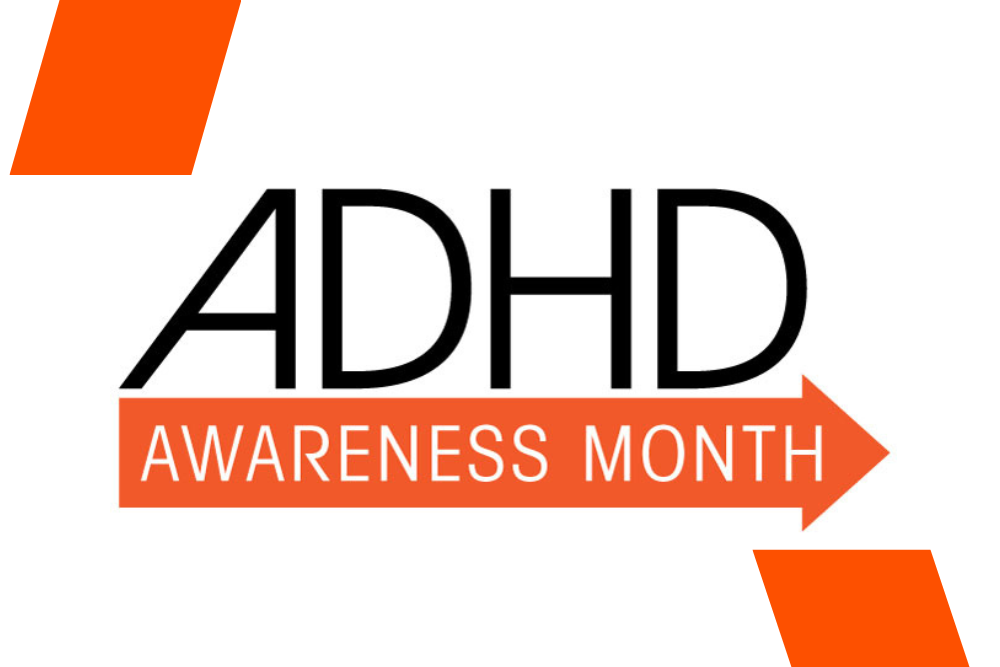What is ADHD?
ADHD, or Attention Deficit Hyperactivity Disorder, is a neurodevelopmental condition that affects both children and adults. According to figures from ADHD UK, it is estimated that roughly 5% of the world’s population have ADHD. This condition is often noticed in early childhood, but in some cases, it may not be diagnosed until adulthood.
October is recognised globally as ADHD Awareness Month. This is a time for individuals, health professionals, and organizations to come together to raise awareness about ADHD, dispel myths, and share resources for those living with this condition.
ADHD Symptoms in Adults
In adults, ADHD can lead to a variety of difficulties. These include problems with focusing and completing tasks, organization and time management, coping with stress, and feelings of restlessness or impulsivity. Each individual’s experience with ADHD is unique, and the severity and combination of symptoms can vary widely.
Getting Diagnosed with ADHD
If you think you may have ADHD, it’s important to seek professional help. A good first step is to register with Student Support and Wellbeing, where you can make an appointment with an SpLD (Specific Learning Differences) Adviser and discuss your symptoms. Based on your discussion, your Adviser may encourage you to contact your GP or may refer you for a diagnostic assessment.
Video: Anna’s experience of ADHD
Music and Audio Tech lecturer Anna Neale Widdison talks about being diagnosed with ADHD later in life, and describes some of the challenges and opportunities that she has experienced in her working and family life.
Positives of ADHD
Although ADHD can present a variety of challenges for individuals who have it, it’s important to note that ADHD also has some potential positive aspects – unique strengths and abilities such as these:
- Creativity: Some individuals with ADHD are known for their creativity and innovative thinking. They often have a unique perspective on problems and can generate creative solutions.
- Hyperfocus: While ADHD is characterized by difficulties in sustaining attention, some individuals with ADHD can experience “hyperfocus” on tasks or activities that deeply interest them. During these periods, they can be highly productive and focused.
- Energy and Enthusiasm: People with ADHD can bring a lot of energy and enthusiasm to projects and activities they are passionate about. Their enthusiasm can be infectious and motivate others.
- Out-of-the-Box Thinking: ADHD individuals often think outside the box and can make connections between seemingly unrelated ideas, which can be valuable in problem-solving and innovation.
- Resilience: Many people with ADHD develop resilience as they face and overcome the challenges associated with the disorder. This resilience can serve them well in various aspects of life.
- High Energy Levels: Individuals with ADHD often have high levels of physical and mental energy, which can be an asset in activities that require endurance or rapid decision-making.
- Spontaneity: ADHD individuals can be spontaneous and adventurous, which can lead to exciting experiences and a willingness to take risks.
- Empathy: Some people with ADHD are highly empathetic and sensitive to the emotions of others, which can make them excellent listeners and supportive friends.
- Multitasking: While ADHD can make it difficult to focus on one task at a time, some individuals with ADHD excel at multitasking and managing multiple responsibilities simultaneously.
It’s important to recognize that not everyone with ADHD will possess these positive attributes, and the impact of ADHD can vary widely among individuals. Additionally, these strengths can come with their own set of challenges, and individuals with ADHD may need support and strategies to harness these positive aspects effectively while managing the difficulties associated with the disorder.
More Information and Support for ADHD at Kent
Whether or not you have a diagnosis, our expert staff at Student Support and Wellbeing can provide support for students with specific learning differences such as ADHD. The types of support you can access include:
- Support from your SpLD Adviser throughout your course through online or in-person meetings.
- An Inclusive Learning Plan (ILP) to set out reasonable adjustments to courses and assessments.
- Access to assistive software on and off campus.
- Study skills support, and specialist mentoring if you’ve got ADHD.
- Help applying for Disabled Students’ Allowance (DSA).
If you think you might be affected, get in touch so we can help you thrive in your studies!
